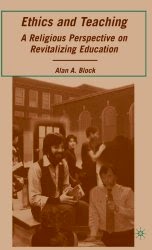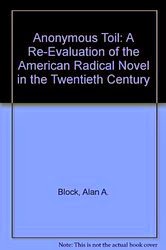Moral Equivalents
But the Rabbi refutes this attribution of zealousness and therefore, the devotion of the Karaites. He says that those who “speculate on the ways of glorifying God for the purpose of His worship, are much more zealous than those who practice the service of God exactly as it is commanded. For the Rabbi, the Karaites have accepted the easier path to worship for they merely follow orders, as it were—though of course, those orders—literal as they might seem, still require interpretation. Written language always requires a speaker. But for the Karaites there remains only a single voice of authority and therefore, I suppose, a single text of authority. For the Rabbis, the text is always open to interpretation and that is a human enterprise.
And then Halevi’s Rabbi makes an interesting analogy: he says that the Karites are like those who live in a town where they are safe and without opposition, whereas the others are like stragglers in the desert, who are not certain what might occur in the future. In the desert one is fully exposed and vulnerable. Using images of battle the Rabbi says that such stragglers “must provide [themselves] with arms and prepare for battle like one expert in warfare.” And those arms and battle preparations represent the intellectual equipment for textual interpretation based as those tools must be on an overriding ethic to care for the widow the orphan and the stranger in our midst, for once we were strangers in Egypt and God took out the Israelites with signs and an outstretched arm. But the imagery of battle recalled to me William James talk on “The Moral Equivalent of War.”
In that talk James advocated for a national conscription that would enlist young citizens in a ‘war’ against Nature: against the forces natural and unnatural that breed the hardships, inequalities and injustice that beset the world. This conscription would offer the country numerous other benefits: make visible the imbalances and injustices to which the luxurious classes now are blind and/or indifferent; provide insight into man's relations to the globe he lives on; and to the infinitely available and hard-wrung source of man’s higher life. “To coal and iron mines, to freight trains, to fishing fleets in December, to dishwashing, clotheswashing, and windowwashing, to road-building and tunnel-making, to foundries and stoke-holes, and to the frames of skyscrapers, would our gilded youths be drafted off, according to their choice, to get the childishness knocked out of them, and to come back into society with healthier sympathies and soberer ideas. They would have paid their blood-tax, done their own part in the immemorial human warfare against nature; they would tread the earth more proudly . . .” This conscription, an early form of VISTA and Americorps, would prepare our youth for a life of service and not of selfishness, of community rather than self-centeredness, of concern for the social good rather than the private gain. James avers that “As the soldier is disciplined and trained for some albeit public good, so would the citizen be so trained. Such a conscription, with the state of public opinion that would have required it, and the many moral fruits it would bear, would preserve in the midst of a pacific civilization the manly virtues which the military party is so afraid of seeing disappear in peace. We should get toughness without callousness, authority with as little criminal cruelty as possible, and painful work done cheerily because the duty is temporary, and threatens not, as now, to degrade the whole remainder of one's life.” Despite the sexism implicit in James’ charge, his call for a moral equivalent to war insists that this emphasis would produce better teachers and even fathers and mothers.
Well, it might be a far stretch, but for both the Rabbi and for James (as well as for John Lennon), life doesn’t come easy, and requires strength, endurance and training to achieve some haven in the wilderness. For the Rabbis of the Talmud, the promised land was the realization of the foundational ethic, and struggling with the text was the means by which to travel and from which to seek arrival. James knew that it was the teacher who could provide the tools and means that would provide direction and succor to achieve the higher life. “ . . . the mind of him whose fields of consciousness are complex, and who, with the reasons for the action, sees the reasons against it, and yet, instead of being palsied, acts in the way that takes the whole field into consideration--, so, I say is such a mind the ideal sort of mind that should seek to reproduce in our pupils.” Halevi’s Rabbi claimed that the stragglers in the wilderness must in their wanderings “look for a fortress where they can entrench themselves.” And I think that what is important in Halevi’s sentence is the verb “to look.” These stragglers must be constantly in search of a place of comfort though they are never assured of finding one nor, indeed, of it being a permanent refuge. Indeed, finally these wanderers must construct their own refuge; they are, after all, in the wilderness. The Karaites, however, “lie down on their couches in a place well fortified of old.”
I think interpretation is this march through the wilderness. We must find our own way but with tools and means with which to direct and ease our paths.











0 Comments:
Post a Comment
<< Home